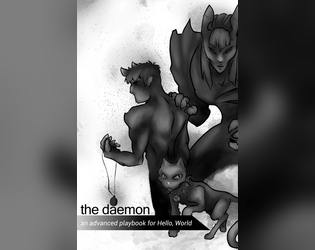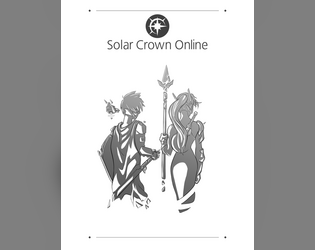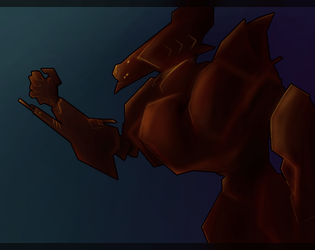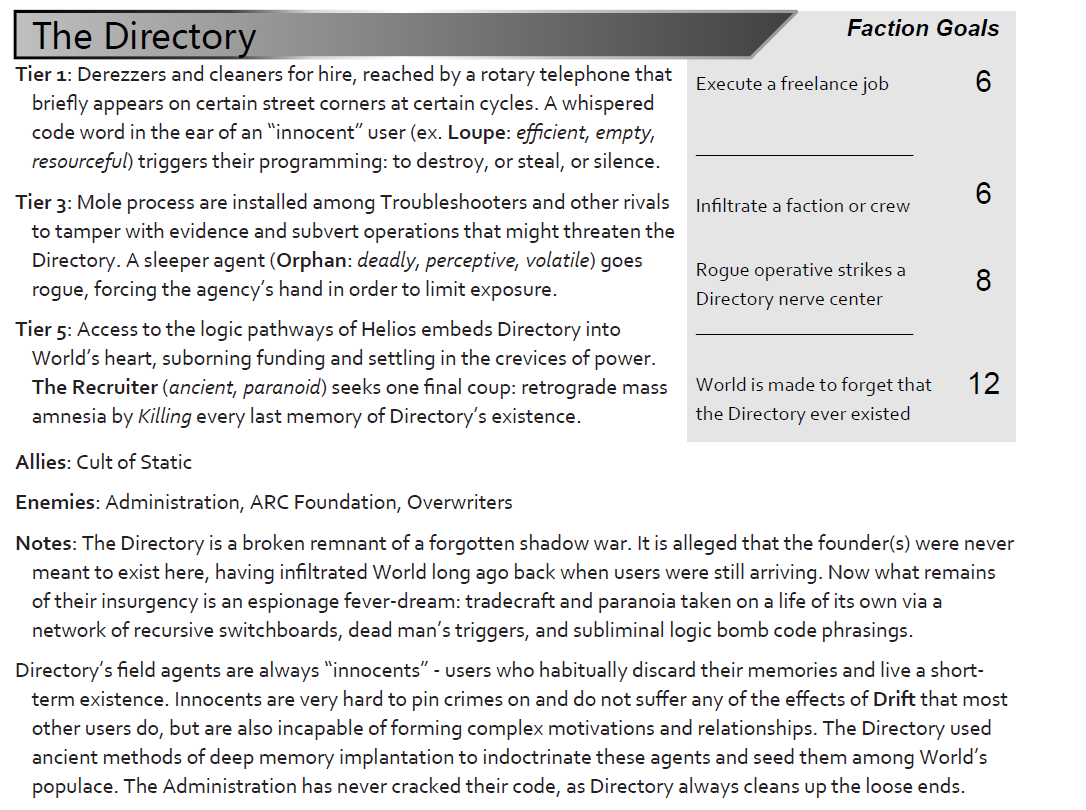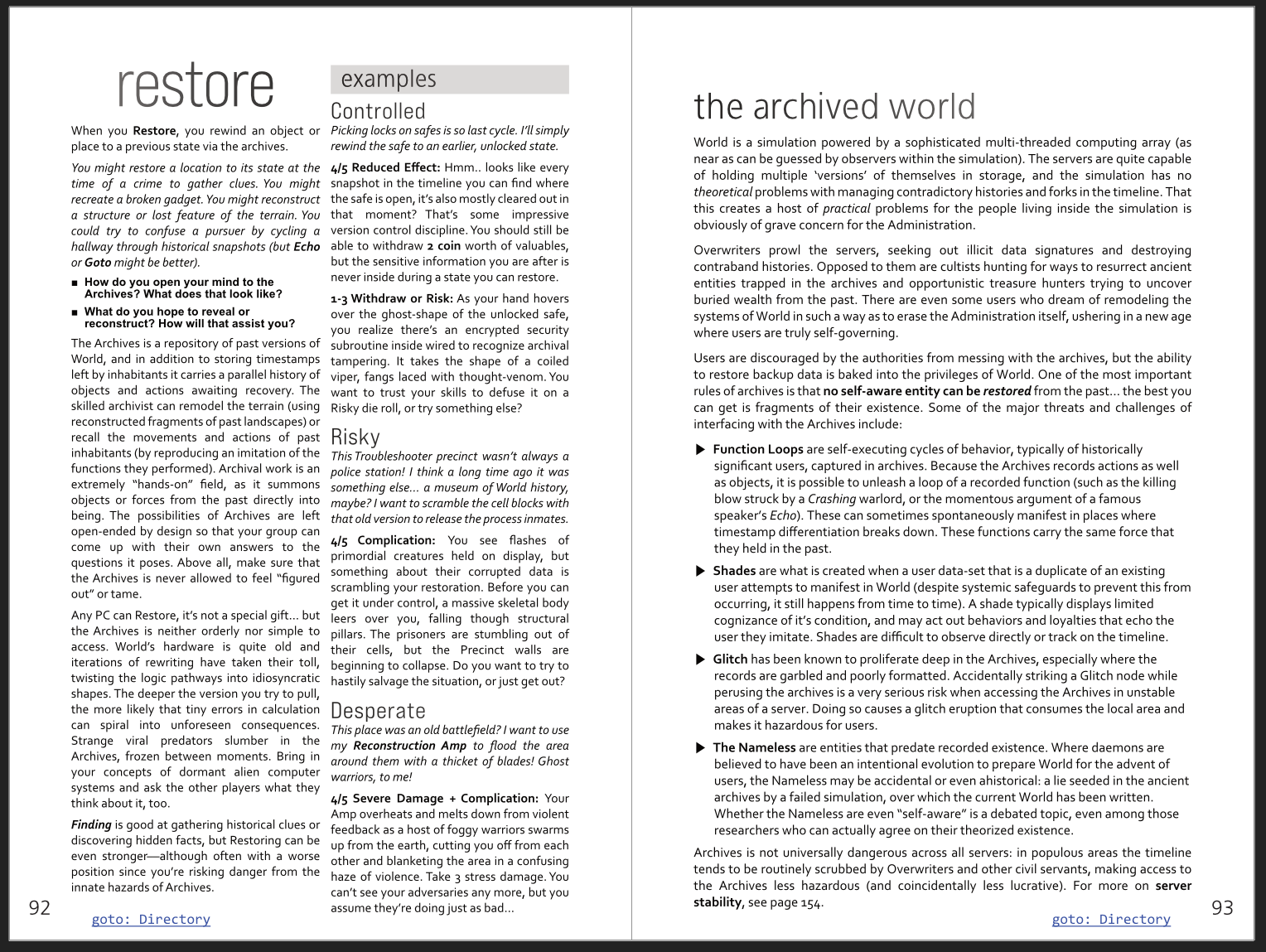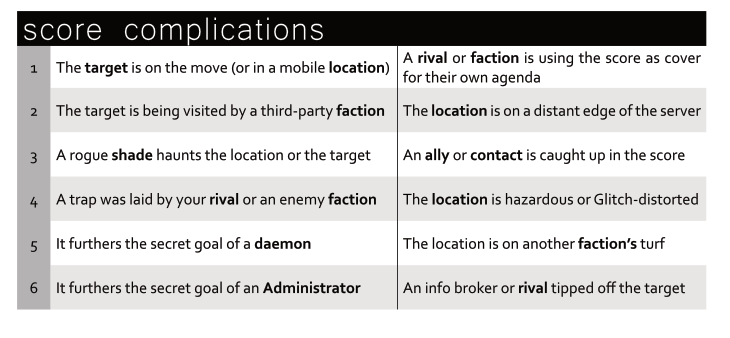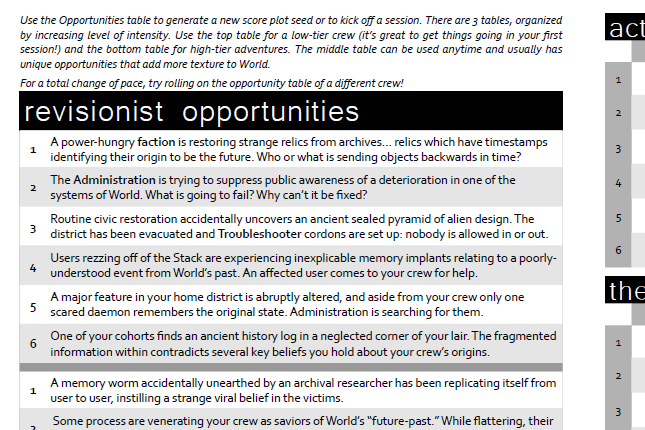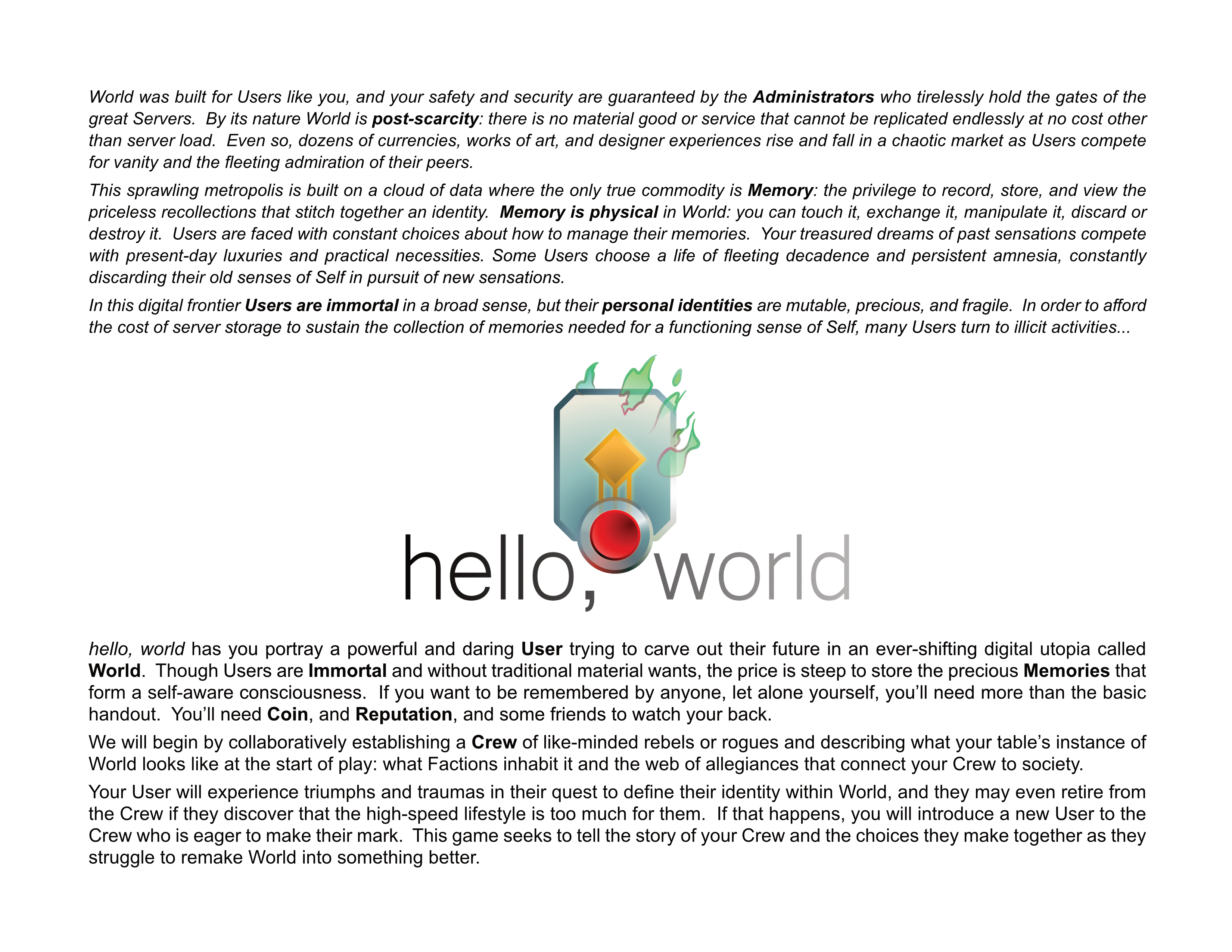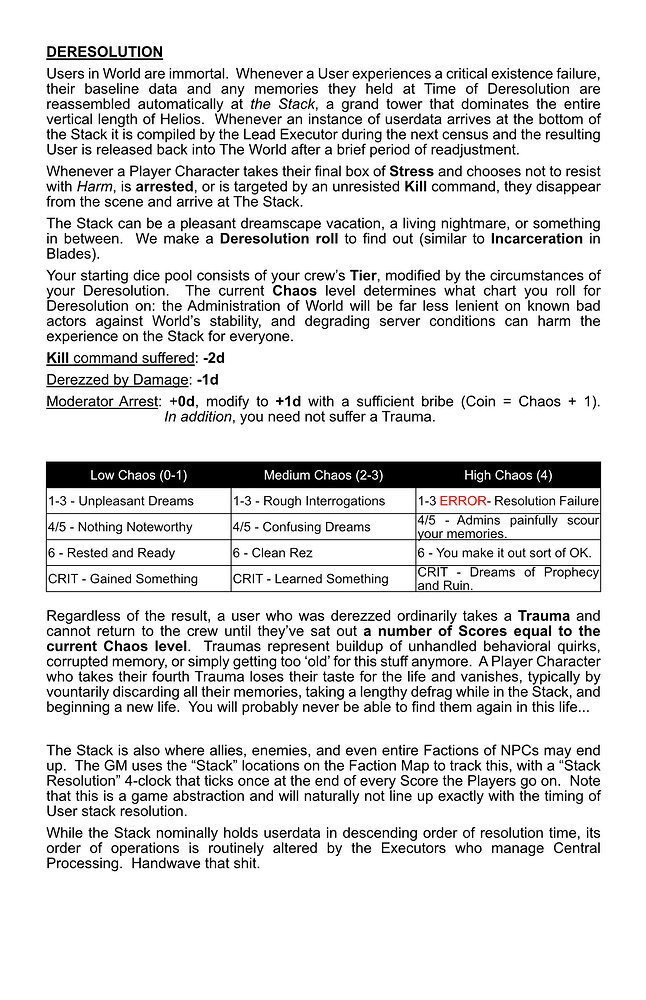I don't have plans for those platforms currently CrestWork, but when I run the game for a remote group we use Role (https://app.playrole.com/). Role has many of the same features as Roll20, including integrated dice rollers in the playbooks and handouts/maps/tokens and the like, and I have a template for Hello World that has the player and crew playbooks already built with handouts and district maps and such.
If you or anyone else would like me to copy you a room off my template to use for yourself, I would be happy to! Just reach out to me via either twitter DM or email (my contact details are here: https://umbralaeronaut.itch.io/).


